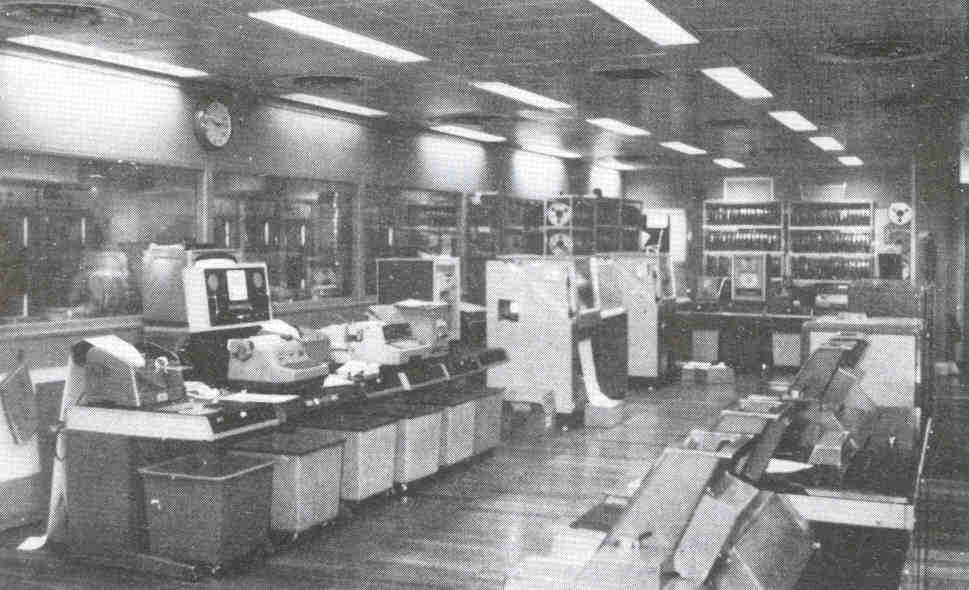

Transcribed for the World Wide Web in 2013 by Dik Leatherdale and Bob Hopgood by kind permission of Iain Stinson (who continues to assert his rights as author) and of the publisher, Mrs Carys Cox. This version uses a style similar to that used in the rest of the Chilton site. Another version attempts to replicate the look and feel of the original publication.
When I acquired the London ATLAS on the 30th September 1972, I felt that it would be a pity for this machine to die without its story being told and recorded for history.
But which story? The story as seen through the eyes of Ferranti who initiated its design and development in conjunction with the Manchester University, or the story of the public relations men from International Computers Limited, who by now were ostensibly responsible for the machine, although, in fact, they had had little or nothing to do with its conception, or the story written by the newspaper men from official handouts or backroom gossip?
In fact, there was little or no newspaper story of the death of the London ATLAS. It merited a very short paragraph in one or two of the technical journals, but otherwise, like the old soldier, it simply faded away.
I decided, therefore, to invite a young man who had used the machine fairly extensively and who had access to other people who had had intimate relations with the machine to write the tale for me.
His terms of reference were to describe in what way ATLAS differed from other computers and, as far as possible, to give his judgment on how it measured up to the abilities claimed for it and in what way it might have achieved better-than anticipated performance, and how it high-lighted unusual circumstances.
The result has been this book which gives a factual and a reasonably unbiased view of the computer. It has turned out to be a very good text book, not only in the sense of the technicalities it high-lights, but also in the hidden lessons behind the events which occurred.
The development of ATLAS, in my opinion, was the peak of the exploitation of British computer development.

Immediately after that peak the end of the British computer industry was in sight despite what may be rumoured in the market place of the wares to come.
Some of these later developments have made their appearance but have not made any real impact, and the moral of the whole of the last fifteen to twenty years of British computer activity undoubtedly is that the ideas and ingenuity were there, but the backbone and courage to see things through were lacking in those who had the authority.
Richard Hugh Williams
Managing Director Computer Consultants (International) Ltd., G.P.O. Box 8, Llandudno, Wales. March, 1973.
The author, who is single, was born in 1949 at South Shields, County Durham.
He studied at the Grammar School there and went up to Royal Holloway College, University of London, to read Mathematics and Computer Science.
During 197-72 he attended the University of London Institute of Computer Science as an M.Sc. student. He is presently engaged in research in computer operating systems.
He was first introduced to computers while at school where he was able to use the Pegasus computer which had been given to the school by a large insurance company. This unusual fact probably accounts for his early interest in electronic computers.
His hobbies include music of all types - something that seems common amongst many computer people - and he is a keen organist, being a joint holder of the World Harmonium Playing record.
Although his family are all interested in music, there are no other scientists amongst them.